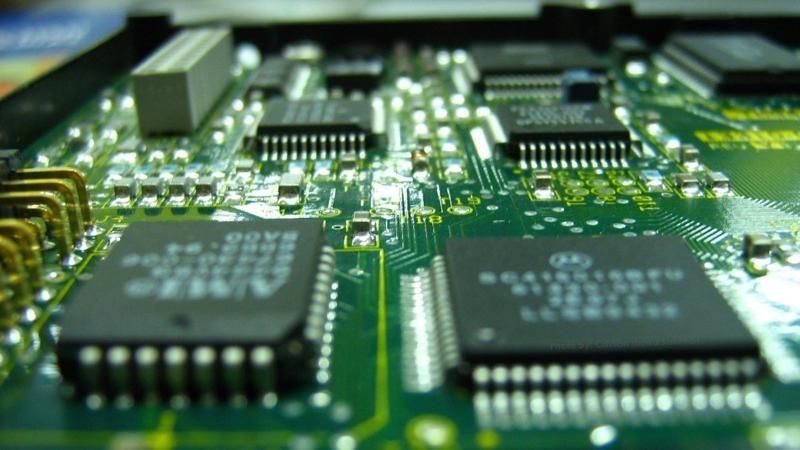
PETALING JAYA: The US plans to raise tariffs on a wide range of Chinese imports, including semiconductors, batteries, solar cells and critical minerals will benefit Malaysia further as multinational companies look to alternative investment destinations.
In particular, the tariff rate on semiconductor imports from China will double from 25% to 50% by 2025, targeting strategic sectors such as electric vehicles (EVs), batteries, semiconductors, solar cells, medical products, steel, aluminium, critical minerals, and ship-to-shore cranes.
“This move to increase levies on targeted China products will result in Chinese companies, which are already supplying to the United States, looking at putting orders through other companies in the South-East Asia region currently serving the United States market,” Malaysia Semiconductor Industry Association president Datuk Seri Wong Siew Hai told Starbiz.
He said Malaysia stood to benefit from the business diversion given the country’s stronghold in the semiconductor industry.
Malaysia has 13% of the global market for chip packaging, assembly and testing services, according to the Malaysian Investment Development Authority in a Feb 18 report.
It is the world’s sixth-largest exporter of semiconductors.
The semiconductor industry contributes to about 25% of Malaysia’s gross domestic product.
“For the United States, imports of these products from China will become more expensive and they will look for alternative suppliers to support the manufacturing of their products in order to be more competitive.
“Essentially, the higher tariffs imposed on China will open up opportunities for South-East Asian companies which are already supplying similar products to the United States,” he added.
Among the top gainers on Bursa Malaysia at 3.30pm yesterday were semiconductor counters including Unisem (M) Bhd, which rose 2.56% to RM4 and Aurelius Technologies Bhd which was up 1.97% to RM3.11. Meanwhile, Inari Amertron Bhd gained 1.29% to RM3.13 while Vitrox rose 1.21% to RM7.54.
Similarly, AmInvestment Bank Bhd (AmResearch) said in its report yesterday that there will be more intense trade diversions to Malaysia, especially Chinese players that have US customers.
It expected higher foreign direct investment (FDI) inflows to Malaysia for relocation and supply chain divergence.
According to RHB Research, there was an evident growth of FDI and spillover effect to local companies stemming from supply chain divergence and relocation.
“As companies around the world look for an alternative to China to mitigate geopolitical risks – a strategy dubbed as “China Plus One” has benefitted Malaysia given its robust semiconductor ecosystem, supportive infrastructure and wide array of talent pools.
“Chinese suppliers serving major US multinational corporations have also begun partnering with local Malaysian companies to establish plants in Malaysia to continue supplying their US-based customers,” the research house added.
RHB Research pointed out that the tariffs were initially imposed in 2019 on US$300bil worth of goods during the Donald Trump administration and this escalation was not entirely unexpected.
Since the onset of the US-China trade war five years ago, significant supply chain relocations and divergences have occurred, making the semiconductor supply chain more resilient in addressing such challenges.
It said this situation will also open doors for Malaysia-based companies, particularly in the automatic test equipment sub-segment, as Chinese companies shift away from US-based suppliers.
Three outsourced semiconductor assembly and test vendors – Inari Amertron, Malaysian Pacific Industries, and Unisem have exposures through their plants in Kunshan and Yiwu, Suzhou and Chengdu.
“However, we expect the impact to be minimal (if any) as their customers are mainly catering for the non-US market and various programme transfers have taken place since the trade war started five years ago.
“In fact, this development could accelerate and intensify the project and programme transfer or relocation, benefitting the companies in the mid-term,” RHB Research added.
Meanwhile, AmResearch believed that Vitrox Corp Bhd, Greatech Technology Bhd, Pentamaster Corp Bhd and TT Vision Holdings Bhd could be the beneficiaries being involved in the EV, solar, medical and semiconductor sectors.
“However, we expect some negative situation in the end-market which is likely to impact some of our local players.
“We believe end-products such as legacy chips, EV and solar panels could flood the market with oversupply as inventories eventually pile up.
“Hence, we are cautious on the oversupply of end-products that can cause a slower rate of replenishment in orders by Chinese customers,” it added.
The research house also expected intensified competition among Chinese players that could lead to years of market consolidation.
“This will also affect our local players that are tapping into the Chinese market as they face more challenges such as declining market share and prices.
“Overall, we are positive on this development given the increased sourcing of components from Malaysia and longer term FDI flows which will further upgrade the entire supply chain and ecosystem development in the country,” AmResearch added.
Source: https://www.thestar.com.my/business/business-news/2024/05/16/united-states-tariff-hike-will-benefit-malaysia

